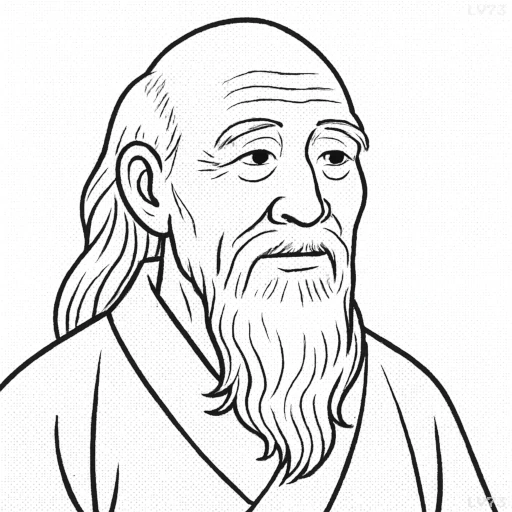“Treat those who are good with goodness, and also treat those who are not good with goodness. Thus goodness is attained. Be honest to those who are honest, and be also honest to those who are not honest. Thus honesty is attained.”

- 571 BC? – 470 BC?
- Born in China
- Philosopher
table of contents
Quote
“Treat those who are good with goodness, and also treat those who are not good with goodness. Thus goodness is attained. Be honest to those who are honest, and be also honest to those who are not honest. Thus honesty is attained.”
Explanation
This quote from Laozi speaks to the power of unconditional virtue and the idea that true goodness and honesty are not dependent on how others behave, but are qualities we embody regardless of external circumstances. Laozi suggests that goodness is attained not by responding to others based on their actions or character, but by consistently practicing goodness, even in the face of those who are not virtuous. Similarly, honesty is achieved by being honest to all, regardless of whether others are honest in return. This teaching underscores the idea of acting from a place of integrity and compassion, rather than reacting to the behaviors or flaws of others. By responding to negativity or wrongdoing with goodness and honesty, we cultivate these virtues in ourselves and create a harmonious environment.
In modern life, this concept resonates with the idea of selfless leadership, empathy, and personal integrity. In a world where it is easy to mirror the behavior of others, especially when they treat us unfairly or dishonestly, Laozi’s wisdom calls us to rise above reactive behaviors and respond with virtue. Whether in personal relationships, work environments, or public life, when we treat others with kindness and respect, even when they do not reciprocate, we help to foster an atmosphere of understanding and compassion. This approach helps to break the cycle of negativity and resentment, encouraging mutual respect and personal growth.
This principle also encourages us to lead by example. By choosing to respond with goodness and honesty, we inspire others to do the same, creating a ripple effect of positive behavior. Laozi’s teaching reminds us that the power of virtue is not in what others do, but in how we choose to act, regardless of how we are treated in return. True strength and wisdom lie in acting with integrity, not because it will necessarily change others, but because it aligns us with the natural flow of goodness and truth.
Would you like to share your impressions or related stories about this quote in the comments section?


